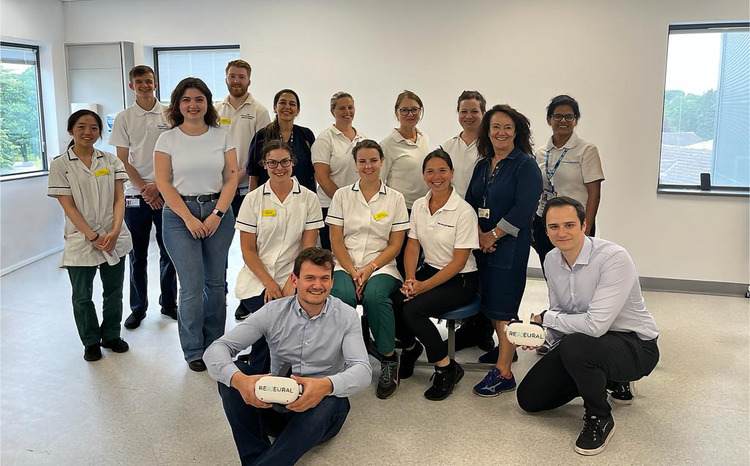GPSoC signed without TPP
- 28 March 2014

Sixteen suppliers of GP IT systems have signed up to a new GP Systems of Choice framework, but TPP has not.
The three other principal suppliers of GP clinical systems, Emis, INPS and Microtest, have all agreed to the terms of the new framework, but EHI understands there are some outstanding issues with TPP that are yet to be resolved.
The Health and Social Care Information Centre is hoping to get the company signed up by the 1 April deadline when the current contract expires, but says plans are in place to ensure continuity of service for users of TPP’s SystmOne if this does not happen.
GPSoC is a framework contract which funds GP IT systems for 75% of practices in England. The framework expired last March, but was extended for another year while the Department of Health tendered for a new contract, worth up to £1.2 billion.
The new framework will centrally fund 13 subsidiary suppliers for the first time, such as providers of document management PCTI and patient transactional services such as Paers. It also includes payments for practices’ use of national services like the Summary Care Record.
GPSoC programme director at the HSCIC, Kemi Adenubi, told EHI GPs should be excited about the addition of subsidiary services to the centrally funded Lot 1 of the contract.
“There are certain things GPs have been saying for quite a long time should be standard elements of the GP IT toolkit, such as document management, which will now be funded centrally,” she explained.
However, Adenubi said the government cannot afford a “sweetie shop mentality” around subsidiary services.
“We have the money to allow these to be introduced and procured by practices over time. We will fund ongoing licenses and support charges, but if they don’t already have services in place, they have to pay for deployment so they have some skin in the game.”
The new contract specifies interface mechanisms that will open up the principal systems to integrate with the subsidiary suppliers.
None of the subsidiary services will be available from day one of the contract as they need to go through a “pairing process” with the principal suppliers to prove the integration. This could take weeks to a year depending on the complexity.
A governance group, chaired by NHS England head of business systems Richard Jefferson, will evaluate the applications of subsidiary suppliers to integrate using testing environments.
Information will be provided on the HSCIC website regarding the dates on which the newly funded services will become available.
Another new feature of the contract is that GP system user groups will develop roadmaps for system development that suppliers must comply with. The roadmaps have not yet been defined, but “by the end of next year they need to have agreed something and delivered to their users”, said Adenubi.
Utilisation payments will also be attached to deployment and utilisation of national systems such as the Summary Care Record, the electronic prescribing service and GP2GP.
“This is not new money. This is taking money used previously in a different way and linking it to utilisation,” Adenubi explained.
She said it has been a “hard slog” for all involved to get to this point and the work done so far signals a “great start to a long-term relationship”.
Jefferson said the new framework is about openness and interoperability and provides some competition and choice for GPs
It will align with the new GP IT operating framework, due to be published in the next couple of weeks, which will continue NHS England’s push towards more GPs moving to hosted clinical systems and deployment of national systems.
The commitment to open interface mechanisms will also benefit suppliers that are not on the framework.
“It’s a positive step forward that underpins the objectives around securing excellence in GP IT, creating an open and vibrant market of solutions through open interfaces and also in providing patients with access to their records,” said Jefferson.
“It has been a big piece of work and the team in HSCIC has done a great job, so I’m grateful to them, and also to the suppliers who have participated. It puts us in an excellent position to move forward.”
The new framework will run until the end of December 2016, but has options to extend.
The HSCIC plans to publish pricing across all of the suppliers along with commentary so people can understand the comparisons.
The HSCIC has just started talking to suppliers involved in Lots 2 and 3, which are unfunded, and hopes to have these contracts signed by October.
The 16 suppliers which have signed the new GPSoC contract are:
- Advanced Health And Care Limited
- Black Pear Software Limited
- BMJ Informatica Systems Limited
- DXS International Plc
- Egton Medical Information Systems Limited
- Infermed Limited
- In Practice Systems Limited
- Integrated Care 24 Limited
- IPlato Healthcare Limited
- Merck Sharp & Dohme Limited
- Microtest Limited
- PAERS Limited
- P.C.T.I. Solutions Limited
- Prescribing Services Ltd
- United Health (UK) Limited
- Wiggly-Amps Limited




